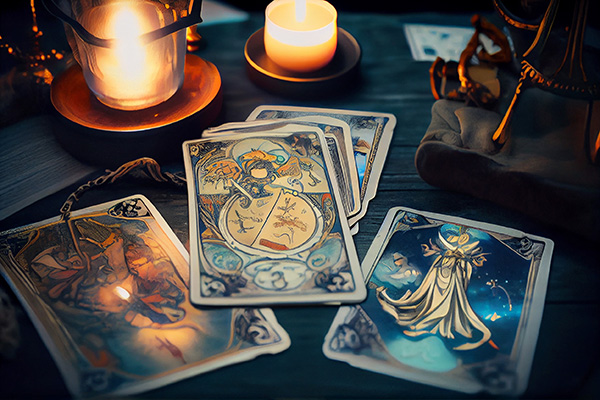spiritual awareness
Embracing The Shadow Within
 When I first began to intentionally and consciously walk a spiritual path, I remember doing so because it just felt so right. Every step I took toward ‘enlightenment’ in this lifetime seemed to bring more brightness into my life, and so many more blessings.
When I first began to intentionally and consciously walk a spiritual path, I remember doing so because it just felt so right. Every step I took toward ‘enlightenment’ in this lifetime seemed to bring more brightness into my life, and so many more blessings.
In those early days I was really rolling! I was expecting this to be an easy ride – all joy and light and love. It was wonderful.
What I hadn’t expected was the inevitable emergence of my shadow through as a result of all my spiritual work. And it was not something I was going to be comfortable with – admitting I had places of darkness within me, unloved aspects of myself, disowned pieces of my soul which had been abandoned and in such pain.
Through a series of, what seemed like, unfortunate events, I was given opportunities to face my shadow side. Challenges in relationships with friends and loved ones arose. I couldn’t understand it at first, and felt very alone and misunderstood. I was shifting the blame for this onto the people around me, instead of going inward.
Going inward, into the light, was totally okay, but going inward into the darkness was terrifying. My ego-self raised every defense to keep me from going there. Eventually, I could avoid it no longer.
My life at this point had endured tremendous change in the course of only a few years- so much so, that the entire landscape of my existence and the people in it were now different. While many of the changes were positive, the magnitude of the differences between my ‘old life’ and my ‘new life’ forced me into robust self-reflection.
Honoring Your Divine Purpose In Uncertain Times
 Knowing your purpose and consciously living it in this day and age is one of the greatest blessings one can experience in this lifetime.
Knowing your purpose and consciously living it in this day and age is one of the greatest blessings one can experience in this lifetime.
Yet, in a troubled world of mass distraction, upheaval, fear, and uncertainty, many spiritual seekers struggle with doubt, confusion, or even despair.
Many people feel lost and uncertain these days. It’s part of being human in the digital age and living in very uncertain times – the pain of questioning, the longing to understand why we are here, and what we are meant to do.
But this is not a sign of weakness or failure. In fact, it is an essential part of our spiritual growth and conscious evolution.
For me, my personal definition of “purpose” has evolved over the years, but at its core it remains constant: exploring the spiritual or higher realms, the invisible threads that weave through our existence, the vast mysteries of spirit and the cosmos.
I believe my soul purpose is to venture into the unseen realms to continue my own immortal, infinite path. I am meant to do this not only for myself, but also for the collective.
My mission is to bring back what I learn from these journeys and share it with others, to offer illumination in the dark corners, to reduce chaos, and to help restore balance to the universe. In short, I strive to be a source of hope and enlightenment, a humble guide to all who are willing to receive this wisdom. Continue reading
Living Your Truth Beyond The Veils Of Illusion
 When you awaken to who you really are — beyond your physical body, thoughts, and emotions — you become fully conscious. You begin to live your life beyond the veils of illusion.
When you awaken to who you really are — beyond your physical body, thoughts, and emotions — you become fully conscious. You begin to live your life beyond the veils of illusion.
This is enlightenment: a state of being in which you have a clear inner realization that you are more than just your body, mind, or personality. It is the recognition of your soul, your divine essence, your true place within the greater fabric of all creation.
Enlightenment is not reserved for saints, sages, or spiritual teachers. It is a living potential within each of us. Nor is it merely a poetic or mystical concept. Enlightenment is a profound existential truth rooted in inner transformation and spiritual transcendence. It is freedom from illusion — the veil of appearances that clouds our perception and keeps us bound to fear, ego, and limitation.
Enlightenment is a return to clarity, authenticity, and the radiant awareness of the light within.
When you are enlightened, you see life clearly. You no longer blindly respond to external expectations, conditioned behaviors, or unresolved wounds. Instead, you live from a place of inner truth and spiritual sovereignty. You recognize your connection to all that is, and your choices begin to reflect this deeper awareness.
However, enlightenment is not an escape from the material world. You still live in it, but you are no longer deceived or controlled by it. You remain grounded, present, and fully engaged in life — but now with a heart full of peace and a mind aligned with higher wisdom.
The Tarot Is A Mystical Bridge To Spiritual Insight
 Mysterious, symbolic and highly energetic, the Tarot is a high vibrational tool that can help us explore the deeper meaning behind the events of our daily lives, and the influence of Spirit in our earthly existence.
Mysterious, symbolic and highly energetic, the Tarot is a high vibrational tool that can help us explore the deeper meaning behind the events of our daily lives, and the influence of Spirit in our earthly existence.
The Tarot especially offers guidance in situations where may feel lost or confused, and it serves as a mystical bridge between our physical reality and the metaphysical realm.
The cards have their own energy, a high vibrational frequency, which Spirit uses to communicate messages of guidance, encouragement, insight and caution.
Every Tarot reader has their own set of spiritual gifts and psychic abilities, and therefore we tend to each develop our own reading style accordingly.
In my own readings, I find that Spirit most often seeks to illuminate areas in our lives where changes and healing may be needed, in order to bring about the most beneficial future outcomes. This can be anything from the need to shift one’s perspective, to the need to let go, or sometimes the need to simply accept things as they are.
Ultimately, I find Spirit uses the Tarot to get us ‘unstuck,’ so we get back in the flow. When we are in the flow, or in alignment, we are creating with the Universe, instead of creating resistance. Only then are we truly moving toward our highest good and the fulfillment of our greatest potential.
The Tarot is a conduit for communication with our guides and our higher self, through which we can gain a deeper understanding of the soul lessons and the magic happening in our lives.
What It Really Means To Live A Spiritually Aware Life
 It doesn’t matter who you are or what you do for a living. It doesn’t matter how much money you make, how popular you are, where you live, or how attractive others find you. None of these things define your true worth, and none of them guarantee the fulfillment of your life purpose and soul plan.
It doesn’t matter who you are or what you do for a living. It doesn’t matter how much money you make, how popular you are, where you live, or how attractive others find you. None of these things define your true worth, and none of them guarantee the fulfillment of your life purpose and soul plan.
In the end, your spiritual wealth transcends any bank balance. The only bling that really matters is how much your soul shines from within!
Many of the most beautiful, caring, thoughtful, compassionate, and charitable souls walk quietly among us — unrecognized by the world’s superficial standards of success. They may not be rich. They may not be famous. They may not wear designer clothes or have thousands of social media followers. And yet, they truly shine!
What really matters is how you treat others, how you live your life, and how you embody your higher self and the light of of your soul in everyday moments. That is what counts in the eyes of God, Source, Spirit, the Divine. The essence of your spirit, not your resume or your reflection in a mirror, is what will leave your legacy in this lifetime.
The essence of this truth echoes throughout the world’s spiritual traditions, reminding us that attachment to wealth, superficial pleasures and material status can become hindrances to our spiritual journey and soul growth.
In Hinduism, for example, the Bhagavad Gita teaches that only those who see the divine in all beings and remain unattached to sense pleasures will find lasting peace. Similarly, in Buddhism, the Dhammapada warns that wealth can ruin the foolish, and the desire for wealth becomes an obstacle to enlightenment. The Buddha taught that spiritual liberation requires renunciation of attachment and the cultivation of inner clarity.
Finding Peace and Joy In The ‘No-thingness’
 Like Neo in the movie The Matrix (1999) our minds occasionally slip into luminous moments of complete stillness and clarity — tiny mental pauses where all thinking stops just long enough for us to glimpse the truth of all existence.
Like Neo in the movie The Matrix (1999) our minds occasionally slip into luminous moments of complete stillness and clarity — tiny mental pauses where all thinking stops just long enough for us to glimpse the truth of all existence.
In these fleeting spaces between our thoughts, it becomes clear that the comings and goings of life are just that… temporary ‘blips’ of experience that arise and pass through our awareness.
I have come to know these moments as realizations of ‘no-thingness.’
In these brief pauses, something quietly opens up within us. We notice the obvious — what has always been there — hidden behind the busy waking mind and its constant commentary. Our awareness shifts from being consumed by temporary events to seeing what’s always there: the background, the container, the eternal.
These silent mental breaks reveal something much deeper and greater than our own existence and awareness.
There’s a word for this in ancient Sanskrit: svabhāva. It means one’s true nature — the essence of who we are beneath the roles, stories, and conditioning. The term is used in many yogic and Vedantic texts to describe the innate reality or unconditioned self beyond our human ego and thoughts.
Our true authentic self is not something we become. It’s something we remember. When we glimpse the silence between thoughts, we’re not discovering something new — we’re reconnecting with our original divine self. Not the self that reacts and worries, but the self that simply is. Svabhāva is the part of us that doesn’t come and go. It’s the constant presence behind every changing moment. It is the essence of living a truly conscious life.
From Lightwork And High Vibes, To Laundry And Dirty Dishes!
 To be in the world…but not of it! I imagine this is the secret wish of many a professional psychic. We walk between two worlds on a daily basis – one rooted in spiritual awareness and higher consciousness, the other deeply embedded in the human condition and everyday reality.
To be in the world…but not of it! I imagine this is the secret wish of many a professional psychic. We walk between two worlds on a daily basis – one rooted in spiritual awareness and higher consciousness, the other deeply embedded in the human condition and everyday reality.
Our clients prefer to see us as serene and calm mystics who somehow exist above the daily struggles of ordinary people. But let me be clear: life happens to psychics, too. And sometimes it gets messy!
For example, like everyone else, I have to take care of my usual household chores despite a demanding work schedule. Today I have bills to pay, dishes to wash, and a pile of laundry to do, just to name a few. I don’t get a pass just because I tune into the higher realms for a living.
Short of living in a cave somewhere (and believe me, I’ve been tempted!), psychics are not immune to the challenges and chaos of everyday life.
But what we can do, and what many of us learn to master over time, is to hold a sacred space within ourselves — a sanctuary in our hearts that remains untouched even when the world around us is swirling with turbulence.
Oddly enough, I feel that facing the messy, painful, chaotic challenges of daily life is essential for psychic professionals. These experiences serve as connection points in our spiritual work because they ground us, keep us humble, and make us relatable.